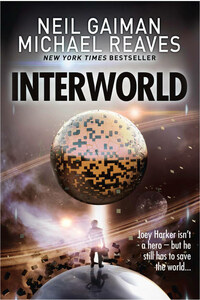ONCE I GOT LOST in my own house.
I guess it wasn’t quite as bad as it sounds. We had just built a new annex—added a hallway and a bedroom for the squid, aka Kevin, my really little brother—but still, the carpenters had left and the dust had settled over a month ago. Mom had just sounded the dinner call and I was on my way downstairs. I took a wrong turn on the second floor and found myself in a room wallpapered with clouds and bunnies. I realized I’d turned right instead of left, so I promptly made the same mistake again and blundered into the closet.
By the time I got downstairs Jenny and Dad were already there and Mom was giving me the Look. I knew trying to explain would sound lame, so I just clammed up and dug in to my mac and cheese.
But you see the problem. I don’t have what my aunt Maude used to call a “bump of direction.” If anything, I’ve got a hollow where the bump should be. Forget knowing north from south or east from west—I have a hard enough time telling right from left. Which is all pretty ironic, considering how things turned out . . .
But I’m getting ahead of myself. Okay. I’m going to write this like Mr. Dimas taught us. He said it doesn’t matter where you start, as long as you start somewhere. So I’m going to start with him.
It was the end of the October term of my sophomore year, and everything was pretty normal, except for Social Studies, which was no big surprise. Mr. Dimas, who taught the class, had a reputation for unconventional teaching methods. For midterms he had blindfolded us, then had us each stick a pin in a map of the world and we got to write essays on wherever the pin stuck. I got Decatur, Illinois. Some of the guys complained because they drew places like Ulan Bator or Zimbabwe. They were lucky. You try writing ten thousand words on Decatur, Illinois.
But Mr. Dimas was always doing stuff like that. He made the front page of the local paper last year and nearly got fired when he turned two classes into warring fiefdoms that tried to negotiate peace for an entire semester. The peace talks eventually broke down and the two classes went to war on the quad during free period. Things got a little carried away and a few bloody noses resulted. Mr. Dimas was quoted on the local news as saying, “Sometimes war is necessary to teach us the value of peace. Sometimes you need to learn the real value of diplomacy in avoiding war. And I’d rather my students learned those lessons on the playground than on the battlefield.”
Rumor at school was that he was going to be canned for that one. Even Mayor Haenkle was pretty annoyed, seeing as how his son’s nose was one of the ones bloodied. Mom and Jenny—my younger sister—and I sat up late, drinking Ovaltine and waiting for Dad to come home from the city council meeting. The squid was fast asleep in Mom’s lap—she was still breast-feeding him back then. It was after midnight when Dad came in the back door, tossed his hat on the table and said, “The vote was seven to six, in favor. Dimas keeps his job. My throat’s sore.”
Mom got up to fix Dad some tea, and Jenny asked Dad why he’d gone to bat for Mr. Dimas. “My teacher says he’s a troublemaker.”
“He is,” Dad said. “—Thanks, hon.” He sipped the tea, then went on. “He’s also one of the few teachers around who actually cares about what he’s doing, and who has more than a spoonful of brains to do it with.” He pointed his pipe at Jenny and said, “Past the witching hour, sprite. You belong in bed.”
That was how Dad was. Even though he’s just a city councilman, he has more sway among some people than the mayor does. Dad used to be a Wall Street broker, and he still handles stocks for a few of Greenville’s more prominent citizens, including several on the school board. The councilman job takes only a few days a month most of the year, so Dad drives a cab most days. I asked him once why he did it, since his investments keep the wolf from the door even without Mom’s home jewelry business, and he said he liked meeting new people.
You’d think that nearly getting fired might’ve thrown a scare into Mr. Dimas and gotten him to back off a little, but no such luck. His idea for this year’s Social Studies final was pretty extreme even for him. He divided our class into ten teams of three each, blindfolded us again—he was big on blindfolds—and had a school bus drop us off at random places in the city. We were supposed to find our way to various checkpoints within a certain time without maps. One of the other teachers asked what this had to do with Social Studies, and Mr. Dimas said that everything was Social Studies. He confiscated all cell phones, phone cards, credit cards and cash so we couldn’t call for rides or take buses or cabs. We were on our own.










